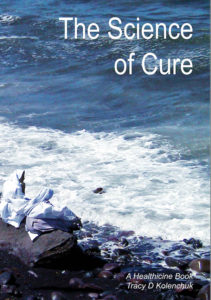 In part 1 we met Alice and Zizi, two women, between 30 and 40 years old, both normal and healthy. The question: Who is healthier, Alice – or Zizi. In part 2, we learned that: Zizi – has one to three colds, every couple of years, typically lasting 3 days or less. Alice has 3 to 5 colds every year, typically lasting 7 days. But in part 3, we learned that we still don’t know who is healthier. Is Alice healthier, or Zizi?
In part 1 we met Alice and Zizi, two women, between 30 and 40 years old, both normal and healthy. The question: Who is healthier, Alice – or Zizi. In part 2, we learned that: Zizi – has one to three colds, every couple of years, typically lasting 3 days or less. Alice has 3 to 5 colds every year, typically lasting 7 days. But in part 3, we learned that we still don’t know who is healthier. Is Alice healthier, or Zizi?
Even when Zizi Gets a Cold, or Not (part 4), we don’t really understand the effects from a healthiness perspective. In many cases, even after the fact, we’re not sure if it was a sinus infection, caused by a bacteria or a virus, or a cold, or both, or perhaps a very mild flu. We head over to the grocery store, or the pharmacy and pick up something for the symptoms. And maybe that’s the best we can do?
What about the flu?
Alice (or is it Zizi?) gets the flu only once every 3 or 4 years. Zizi (or is it Alice?) on the other hand, gets the flu every 3 or 4 years. In this respect, Alice and Zizi are both ‘normal’. Alice takes the flu vaccine every year, and credits the vaccine with helping to ensure she gets the flu less often. Zizi on the other hand, never takes the flu vaccine – believing it has low effectiveness. Zizi trusts her overall healthiness to protect her from the flu.
Who is healthier?
Does the flu vaccine make Alice healthier? Or
does avoiding the flu vaccine make Zizi healthier?
This might lead us back to the assumption that healthiness is the opposite of illness (it is not) and that whoever is ill less often is healthier. However, that assumption proved useless for the common cold – and it won’t help us here either.
The simple truth is: We don’t know who is healthier. We don’t know which actions are healthier. And we don’t know if other actions are the most healthy.
We don’t know if taking a flu vaccine one time makes you more, or less healthy. We don’t know if taking a flu vaccine every year makes you more, or less healthy. And we don’t know if avoiding a vaccine makes you more or less healthy.
Were not even sure if taking a specific flu vaccine makes you more, or less sick. Each flu vaccine is re-designed, every year. The flu virus evolves every year. Because the flu is a seasonal illness, flu vaccines cannot be subjected to the rigorous testing we expect for other medicines. The tests take longer than the season. Each flu vaccine is ‘an experimental product’. Each vaccination is like a clinical study, perhaps a poorly defined and sloppily monitored clinical study. This year’s vaccine results will not be available until a year after Alice and Zizi make their decision.
What is the cost of flu vaccination? A quick back of the envelope calculation puts the USA medical bill in the range of 5 billion dollars per year. This bring up an important, but ignored question. What is the cost benefit? How effective is the flu vaccine, on average, and does the effectiveness justify the cost?
There lies a big problem. Effectiveness of the flu vaccine is seldom measured, and when it has been measured – the results are not good. The most ‘targeted group’ for flu vaccination is those over 65 years of age. The flu vaccines are, according to many studies, almost useless in people over the age of 65. The reason is not clear. Maybe people over 65 have a weaker immune system and thus are less likely to generate a resistance from the vaccine. In that age group – there is a cost, but we’re not sure if there is any benefit. No wonder medical costs are rising.
There are many ways to measure the effectiveness of the flu vaccine – and that leads to more confusion. Should we measure the ‘flu resistance created’? Or should we measure the ‘flu prevented’. Or should we measure the incidence of flu – which might include flu strains not intended to be prevented by the vaccine? Or perhaps we should attempt to measure ‘deaths prevented’. Because the flu does not (in most cases) kill anyone, we don’t even know if a mild flu makes us healthier (after it passes). Measuring the effectiveness of a flu vaccine is very, very complex.
According to the CDC (US Center for Disease Control), the influenza vaccine is 60 percent effective for all age groups combined. Whatever that means, it translates to 40 percent ‘not effective’. Note: The Canadian government web page says the flu vaccine is 80 percent effective (without any clarifying statements). Simple error? Intentional misrepresentation? Propaganda?
Influenza results in many deaths every year – in people of poor health. The CDC considers the vaccine worthwhile. They do also say “It’s important to note, however, that how well flu vaccines work will continue to vary each year” – eg. last years statistics might not be valid this year. Every year is an experiment.
Back to Alice and Zizi. We learned something interesting about the common cold in part 3. The symptoms of the common cold are not caused by the virus – they are caused by the reaction of your immune system to the virus.
What about the flu? It is likely that the symptoms of influenza are not directly caused by the virus and its action, but rather by the body’s reaction to the virus?
Is it more complicated? How many different types of symptoms are present when you have the flu?
1. Symptoms caused by the flu virus.
2. Symptoms that are the result of your immune system fighting the virus.
3. Symptoms of healing that might result when the body is healing or recovering from 1 and 2? Are there symptoms of healthiness as related to influenza?
4. Other symptoms?
….. it’s complicated…
The CDC, and medical science, attempts to measure each vaccines effectiveness by how much illness is present. They assume that if fewer people are ill from the flu, less people will die from complications. But it’s possible that the opposite is true. They don’t attempt to measure health benefits nor health deficits. To study healthicine, we need to study and measure healthiness. We need to study the effects of influenza on healthiness, and we need to measure the effects of the vaccination on healthiness, to guide intelligent, informed decisions.
There’s the old saw “What doesn’t kill me – makes me stronger.” If Alice and Zizi are both young and healthy – does the influenza make them stronger? Do people who don’t suffer influenza suffer a lack of ‘sickness exercise’, leaving them less healthy?
Is the flu, like the cold, a virus that only attacks ‘unhealthy cells’? There are often ‘more than one’ influenza viruses in circulation at one time. Does a ‘minor case of the flu’ protect us from a more severe case of the flu – by killing off many of the cells that would be infected by a more serious infection, thus inhibiting the severe flu virus? Does the flu vaccine, working 60 percent of the time, allow our concentration of ‘unhealthy cells’ to build up, resulting in a more severe case when we do finally get the flu? I don’t believe this has been studied.
Scientific studies tend to be short term, measuring, at best, the effects of a flu vaccine on a single season of influenza. No one has attempted to measure the effect of a flu vaccination on the ‘next season’ of influenza. It is entirely possible that people who are protected in one season become more susceptible to a more serious illness in the next year. But this is more difficult to measure. And there is no ‘market’ support for such a measurement.
There is also little discussion or analysis of how a vaccine actually works. People who are vaccinated are still exposed to flu viruses. Flu viruses still infects them, although we believe that, in about 60 percent of cases, the infection is minor, less likely to cause flu symptoms. It is not clear, for example, whether being vaccinated actually prevents passing the virus to others. We think so… But we’re not sure. We don’t know, for example, if the 40 percent – where the flu vaccine fails – are more, or less likely to pass on the virus as a result of the vaccination. We’re also not sure if being vaccinated for a single flu virus makes us more susceptible to other variations of the flu – and more likely to pass those variations on than someone who was not vaccinated. This is extremely complicated. We study one small part of the picture at a time, hoping to understand the whole picture someday.
We know that people seldom die from the flu. Most deaths are the result of complications arising from the flu – pneumonia being the most common. The flu is also capable of triggering heart attacks. Some flu epidemics cause a severe immune system reaction – where it is believed the people with the ‘healthiest’ immune systems are most likely to die.
There are many factors that influence whether or not we get the flu. Many factors influence whether we suffer minor, or severe symptoms. Many factors determine whether or not we suffer complications.
The current focus on the flu, influenza complications, and flu vaccines directs our attention away from factors that are related to healthiness. Illness tends to be well studied. Healthiness tends to be ignored.
Someday we will study the science of healthiness and through that study, learn more about illness. We cannot know the whole truth about illness, not about medicines, not about vaccinations – until we study healthiness scientifically. We need to study healthicine, the arts and sciences of health and healthiness. When we learn more about healthiness, we will be able to make better decisions about illness as well.
Until then, Alice and Zizi will continue to be confused, as we are, about who is healthier, about what actions are most effective in avoiding illness and what actions they should take to improve their healthiness.
to your health, tracy



Pingback: The Dentist part 2 – Alice and Zizi discuss Fluoride | Healthicine
Pingback: Alice and Zizi: A visit to the Dentist Part 1 – Whose Teeth are the Healthiest? | Healthicine